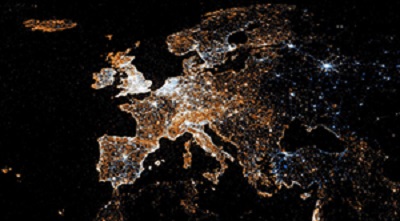 For years, crusaders of the Eurosceptic cause have claimed that all the evils of the world will disappear once Britain leaves the European Union. British fishermen and women will be able to fish as much cod as they like and greengrocers will be able to weigh Brussels sprouts in pounds. Britain will regain control of its borders, parliamentary sovereignty will be restored to its former glory and the great brotherhood of English-speaking countries will be rekindled.
For years, crusaders of the Eurosceptic cause have claimed that all the evils of the world will disappear once Britain leaves the European Union. British fishermen and women will be able to fish as much cod as they like and greengrocers will be able to weigh Brussels sprouts in pounds. Britain will regain control of its borders, parliamentary sovereignty will be restored to its former glory and the great brotherhood of English-speaking countries will be rekindled.
But so far these grandiose promises have not been accompanied by any explanation of what exactly will happen after Brexit. No scenarios have been described apart from vague references to remaining part of the European free-trade zone. It’s about time they spelled out their case.
Both the Leavers and Remainers make exaggerated claims about what withdrawal from the EU will mean. In reality, no one knows exactly what the consequences of Brexit will be, and it will take years to understand the full extent of the change. One thing is clear though – Brexit will not herald a new golden era of restored parliamentary sovereignty.
As the influential consultant on EU law, Jean-Claude Piris, spelled out in a gripping report, life outside the EU can be rather lonely. And even if you do go it alone, those meddling Eurocrats can still have the last word.
Withdrawal from the EU will obviously mean that Britain would regain sovereignty over a wide range of decisions, from agriculture and fisheries policy to justice and home affairs. But, as Piris shows, none of the seven alternative arrangements available to Britain offer complete control over its own affairs. If Britain wants to continue to trade with the EU, it will have to continue to comply with various European laws.
In fact, the only way to secure complete independence would be to rely on the rules of the World Trade Organisation to govern Britain’s trade relations with the rest of the world. But in this scenario Britain would have to pay EU common external tariffs when trading with its former partners, and these can be rather expensive.
On top of that, Britain would no longer benefit from the free-trade agreements the EU has negotiated with other countries. The British government would have to negotiate new ones. This would be time consuming and, more importantly, less advantageous. Britain, as a lone trader, could never hope to have the negotiating clout of the world’s largest trading bloc.
In the other six scenarios outlined by Piris, life for Britain would be less lonely but company and support would come at a price. Under all of them, the British taxpayer will continue to send cheques to Brussels and accept the free movement of people. And Westminster will continue to be constrained by EU law. If, for example, Britain seeks to join the European Economic Area like Norway it would retain sovereignty over agriculture, fisheries, judicial matters and home affairs and foreign policy but it would have to apply EU single market laws. This includes free movement for EU citizens.
If, on the other hand, Britain chooses to follow the Swiss model of signing sectoral agreements with the EU it will not be bound by the judgements of the European Court of Justice. However it would have to incorporate hundreds of European regulations into its domestic legislation affecting areas as different as cartel law, social legislation or food safety. And as Switzerland found out following the 2014 referendum on reintroducing immigration quotas, attempts to regain control over the areas covered by sectoral agreements have dire consequences.
In this referendum Swiss citizens voted against allowing unlimited immigration from the EU. Following the vote, the EU unilaterally decided to kick Swiss students out of the Erasmus study programme to cut access Swiss universities' access to EU research funding streams. The European Commission also announced it would review its relations with Switzerland.
For obvious reasons, Brexit advocates have not explained any of these scenarios to British voters. All these undignified bits tend to be left out. But it really is time for Brexit backers to admit that the alternatives to EU full membership do not imply freedom from Brussels.
This article was originally published on The Conversation. Read the original article.
Rate and Review
Rate this article
Review this article
Log into OpenLearn to leave reviews and join in the conversation.
Article reviews